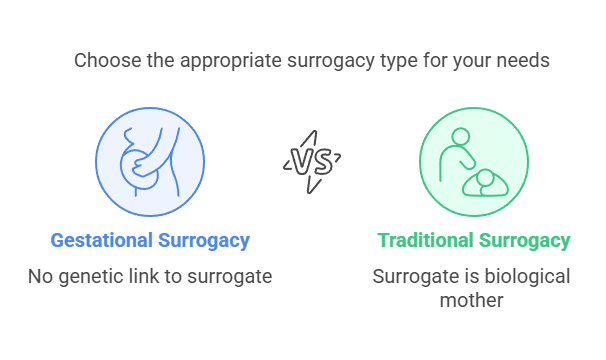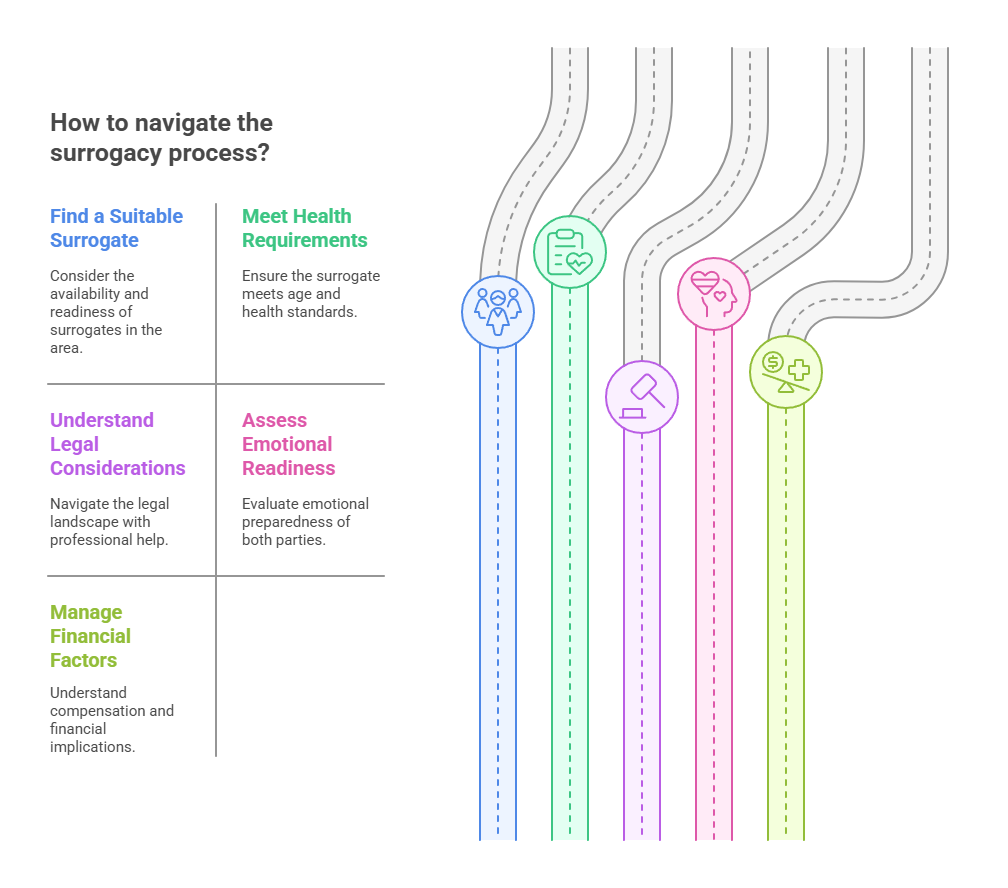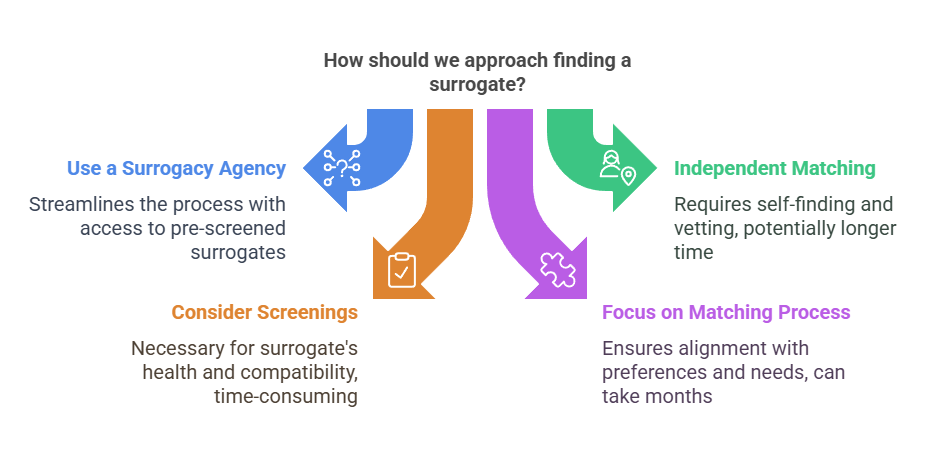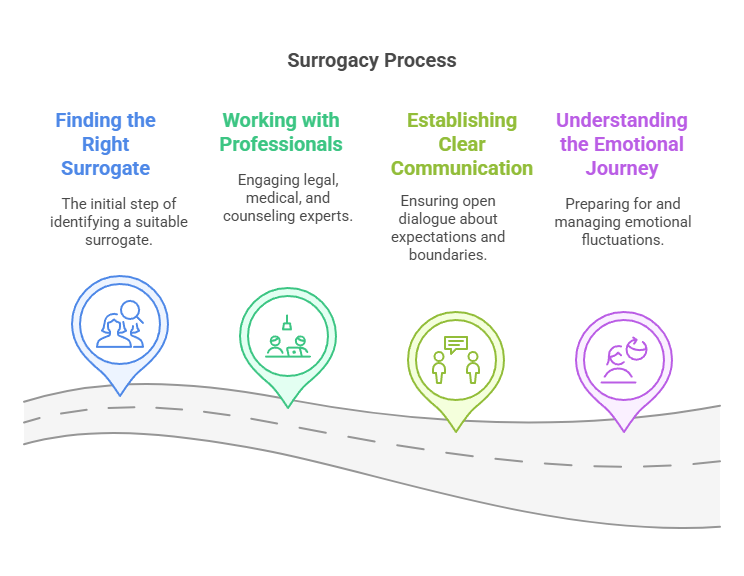Surrogacy is an incredible and life-changing process that enables individuals or couples who are unable to carry a child to have a biological family of their own. However, the journey to finding the right surrogate can be complex and challenging. If you’re wondering how difficult it is to find a surrogate, you’re not alone. There are various factors that influence how easily or quickly this process goes, and understanding these can help set realistic expectations.
Understanding Surrogacy
Before diving into the challenges of finding a surrogate, it’s important to understand what surrogacy is. Surrogacy can be broadly categorized into two types: gestational surrogacy and traditional surrogacy.
- Gestational Surrogacy: In this arrangement, the surrogate carries an embryo created from the intended parents’ eggs and sperm (or donor material). The surrogate has no genetic relationship to the child.
- Traditional Surrogacy: Here, the surrogate uses her own eggs and is the biological mother of the child, though the child is still carried to term for another family.

No matter which type of surrogacy is chosen, finding the right match is crucial for both the intended parents and the surrogate. The process involves more than just matching DNA; it involves finding someone who is physically and emotionally prepared for the responsibility.
Factors That Affect Finding a Surrogate
1. Availability of Qualified Surrogates(How to Become a Surrogate Mother in Houston: Requirements & Process)
Finding a suitable surrogate is not always easy, as the pool of potential surrogates is limited. In some areas, there may be more women willing to become surrogates, while in other regions, the numbers may be smaller. Surrogacy agencies usually have a pool of women who have undergone medical screenings and are emotionally and physically prepared for the journey, but some individuals might opt for independent surrogates, which can add to the complexity.
2. Health and Medical Requirements
The surrogate must meet specific medical and health standards. This typically includes being of a certain age (usually 21-40), having had at least one successful pregnancy, and being in good physical health. Surrogates must undergo a series of medical screenings to ensure they are physically fit to carry a pregnancy and have no underlying health issues that could put them or the baby at risk.
3. Legal Considerations
The legal process of surrogacy varies significantly depending on where you are. Some states or countries have well-defined surrogacy laws, while others have few or no regulations in place. A legal team specializing in surrogacy can help navigate these waters, ensuring that both the surrogate and the intended parents are protected under the law.
4. Emotional and Psychological Screening
Surrogacy isn’t just a physical journey; it’s an emotional one as well. Surrogates are thoroughly screened to ensure they are emotionally prepared for the process. Similarly, intended parents are encouraged to undergo psychological assessments to ensure they are ready for the emotional complexities that come with surrogacy.
5. Financial and Compensation Factors(Surrogate Mother Cost in Houston: What Intended Parents Need to Know)
Surrogacy can be expensive, and understanding how compensation works is crucial. Surrogates are compensated for their time, effort, and any medical costs incurred during the pregnancy. This compensation varies by region, experience, and agency. Financial considerations can sometimes make finding a surrogate more challenging, especially for intended parents who may not have the necessary resources.

The Role of Surrogacy Agencies
Many intended parents turn to surrogacy agencies to help with the matching process. Agencies act as intermediaries, helping to screen potential surrogates, manage medical and legal logistics, and offer emotional support to both the surrogate and the intended parents.
However, some people opt for independent surrogacy, where they manage the process without the help of an agency. While this may seem like a more affordable option, it requires significant knowledge of the legal, medical, and emotional aspects of surrogacy. Those choosing the independent route often have legal professionals, like the author of this post (a law student), to assist them.
How Long Does It Take to Find a Surrogate?
The timeline for finding a surrogate varies greatly depending on several factors:
- Agency vs. Independent: Working with an agency can streamline the process because they have access to a network of pre-screened surrogates. Independent matches can take longer, as intended parents must find and vet surrogates themselves.
- Medical and Psychological Screenings: Once a surrogate is found, she must undergo medical tests and psychological evaluations, which can take time.
- Matching Process: It can take months to find a suitable surrogate who aligns with the intended parents’ preferences and needs.

On average, it can take anywhere from 6 to 18 months to find a surrogate and complete the matching process.(Everything You Need to Know About Surrogacy in Houston TX)
Tips for Finding the Right Surrogate
1. Start Early and Be Patient
The process of finding the right surrogate can take time. Patience is key, as it’s essential to ensure that all aspects of the surrogacy journey are well-considered and that both the surrogate and the intended parents are on the same page.
2. Work with Trusted Professionals
Whether you choose an agency or an independent surrogate, it’s crucial to work with professionals. Legal experts, medical professionals, and surrogacy counselors can help guide you through the complex process and ensure that everyone’s rights are protected.
3. Clear Communication
Communication is critical throughout the process. It’s important to be open and transparent about expectations, boundaries, and emotional support.
4. Understand the Emotional Journey
Surrogacy is an emotional journey for both the surrogate and the intended parents. Be prepared for the emotional ups and downs, and ensure that you and your surrogate have the necessary support in place.

Conclusion
Finding a surrogate can be a complex and time-consuming process, but it is definitely achievable with the right resources and preparation. By understanding the factors that affect the surrogacy process and taking the necessary steps to find the right match, intended parents can ensure a smooth and positive experience. Remember, patience, clear communication, and working with trusted professionals are all crucial in this journey.
Start your surrogacy journey with care, and be prepared for a rewarding experience that will change your life forever.




